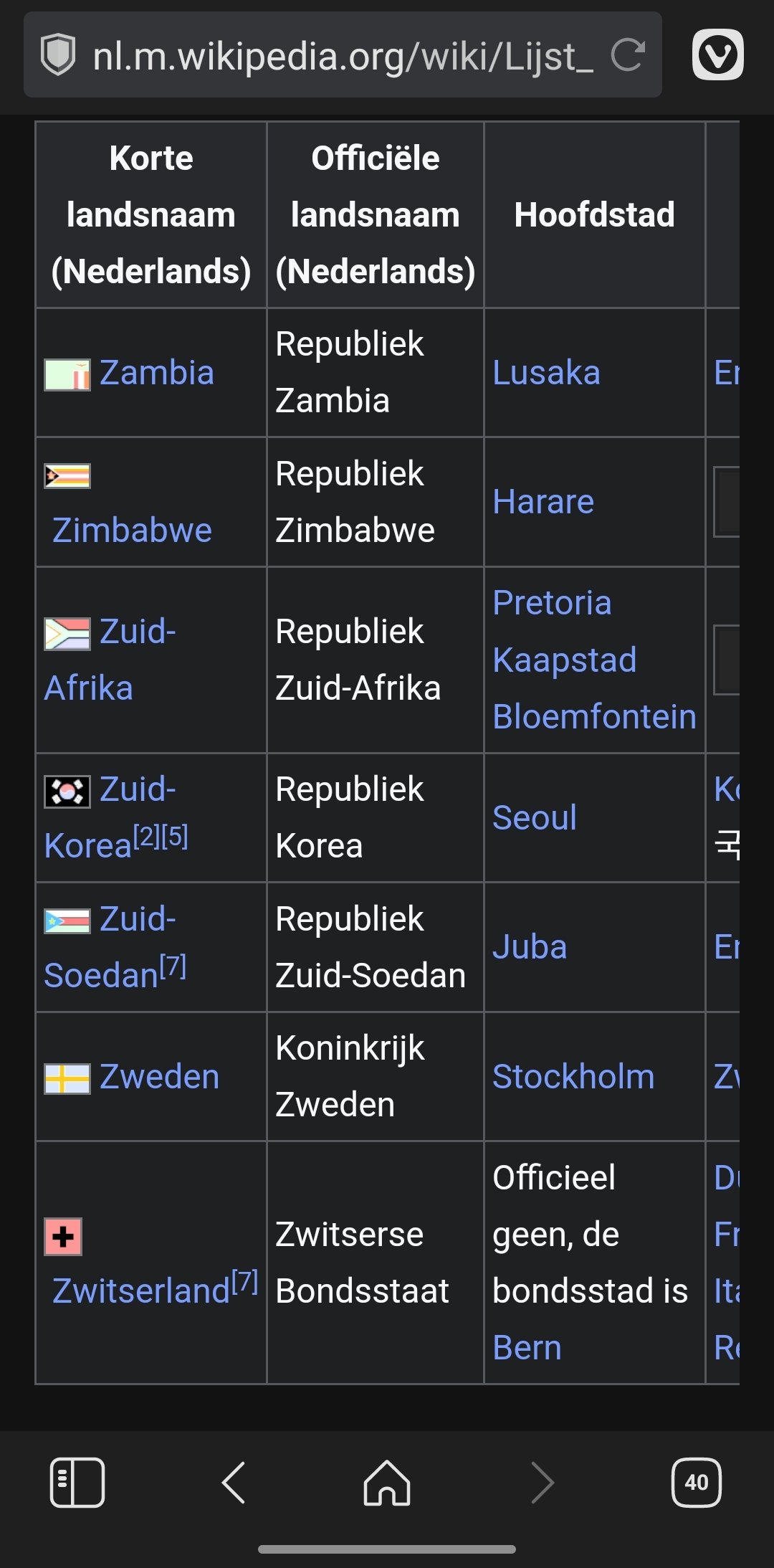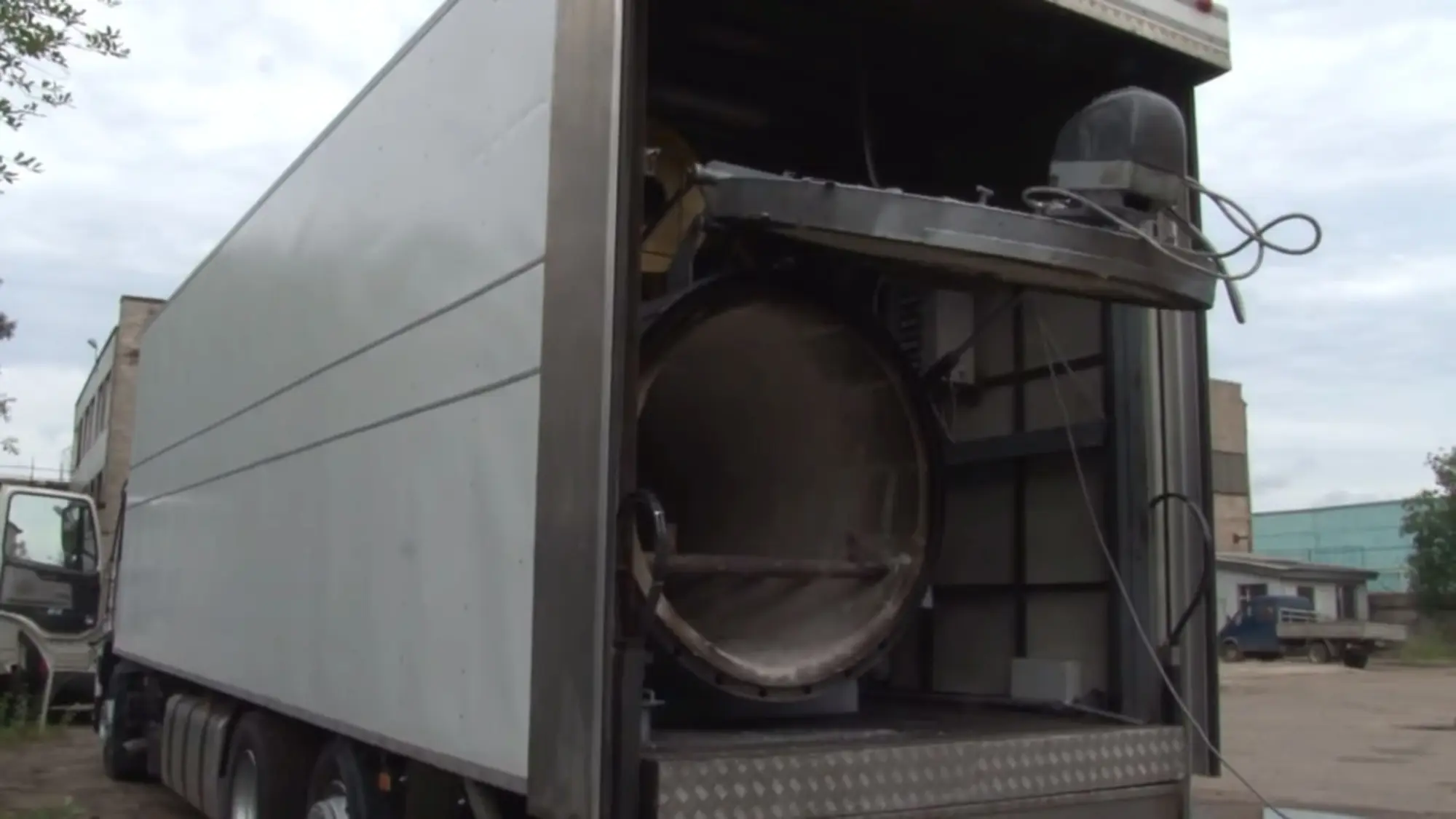Summary
Sweden’s burial associations are seeking land to prepare for potential mass wartime burials, prompting new crisis readiness guidelines following the country’s decision to join NATO amid rising tensions with Russia.
In Gothenburg, officials aim to acquire 10 acres for emergency burials and 15 acres for regular cemetery use.
Sweden’s neutrality ended after Russia’s 2022 invasion of Ukraine, prompting civil defense measures and NATO membership.
This is a very grim subject, but this is going to be a growing problem in many areas of the world. If your personal belief system and culture permits it, you should consider lower-impact burial options such as cremation. There are options for water-based dissolution “cremation” now in addition to the traditional incendiary variety.
This video by Caitlin Doughty (Ask A Mortician on Youtube) talks about some of the new, eco-friendly options, and this playlist has a bunch of videos about practical death questions.
Toss me in an active volcano when I die.
Honestly, I wouldn’t think that land for graveyards would be a huge problem in Sweden.
The Netherlands or something densely-populated, that might be a lot more difficult. Especially since I imagine that you have to have land above the water table by a certain amount.
I wonder how the Dutch do it?
kagis
Ah.
https://www.businessinsider.com/graves-in-the-netherlands-are-rented-2016-1
“[G]raves in the Netherlands are typically rented for 10 or 20 years, with remains being cleared out once the lease expires,” as RBC Capital analysts recently noted in a report.
Interestingly, this has nothing to do with burial rituals. Rather, it’s because there isn’t enough cemetery space in the country.
Poor soil conditions and high ground water tables that slow down the “skeletonisation process” of the bodies preclude the Dutch from building up enough cemeteries, Paul J. M. Van Steen and Piet H. Pellenbarg of the University of Groningen noted in a 2004 research report on burials in the Netherlands.
EDIT: I remember an NPR Planet Money episode talking about long-run graveyard economics.
https://www.npr.org/transcripts/464628054
TANYA MARSH: In most countries in Europe, you buy the right to use a grave for a particular period of time - 20 or 30 years, 50 years.
GOLDSTEIN: And after that, they dig up your bones, and they put them in the bone house. There are these fancy words for this I actually didn’t know before I did this story. They are the charnel house or the ossuary.
SMITH: And is this just because Europe has been around so long, like, if they didn’t do this there would just be bones all the way down?
GOLDSTEIN: Yeah, I think they have a better idea, like, of what it means to say, oh sure, we’ll bury you and keep up the cemetery forever.
SMITH: Yeah, we’re so hopeful in America.
MARSH: We’re the ones who deviate. We came over here, and we said, look at all this land - we can give everybody a grave forever. And so they did.
GOLDSTEIN: Oh, is that a mistake?
MARSH: Yeah, it was a huge mistake.
SMITH: Watch?
GOLDSTEIN: Yeah, so, you know, essentially, in the law - this is in the law in most states - cemeteries are making this legal promise that is an anomaly - that’s really unusual. You know, they are promising to do something forever - to mow the lawn forever, to keep up the fence forever. And she says it’s easy enough to do this while you’re still burying people. You know, someone pays for a plot, and you take some of that money and spend it on, you know, lawn care, etc.
SMITH: It’s like a pyramid scheme a little bit.
GOLDSTEIN: Well, you could say that.
SMITH: You’re paying for old plots with new people coming in.
GOLDSTEIN: Sure. If you were a less cynical person, you might say, you know, it’s like - think about it like work and retirement, right?
SMITH: Yeah, OK.
GOLDSTEIN: So, like, the part where the cemetery is still filling up, that’s like your working life. When the cemetery is full, that’s like retirement, although in this case, you’ve got to retire forever. You’re never going to die. You’ve got to keep the cemetery going forever. But cemeteries do what we do for retirement. While they’re working - in this case, while they’re filling up with new dead people - they save money. So this is often regulated by the state. For example, in the state of New Jersey, where Andrew’s wife’s aunt is buried, the state requires that cemeteries put aside 15 percent of the cost of a new grave, put that into this perpetual care fund. So they say, you’ve got to set that money aside. You can’t touch the principle. And then forever, you know, once your cemetery is full you will have this stream of interest to, say, pay people to cut the lawn. I should say this doesn’t apply to religious cemeteries. But a lot of religious cemeteries do the same thing, even though they’re not regulated by the state.
SMITH: So when our listener, Andrew Mitchell, sees those guys mowing that old cemetery - a cemetery where they’re clearly not getting any new customers - they’re in theory, perhaps, being paid by some investment from long ago.
GOLDSTEIN: Yeah, that’s exactly right.
SMITH: But that probably doesn’t always work out, as we know, when you try and invest for the long run - meaning forever. Sometimes you don’t have the money to do it.
GOLDSTEIN: Definitely. And one of the reasons Tanya Marsh, that law professor, says it’s a mistake to make this permanent promise is cemeteries do go bankrupt. She says it happens a lot. You know, we don’t hear about it because they’re little things, but they don’t invest right, they don’t have enough money saved, and they just don’t have enough money to pay to keep the cemetery up.
This kind of misses a major point. In countries like the Netherlands or Germany the majority of people get cremated. No skeletalization, no bones, no leftovers. The urns are made from a material that dissolves fully within the rental period for the grave, so there is no collectible remains left by the time someone else is put in the same grave.
When you think of the size of Zweden, you’d think it wouldn’t be an issue. The times I’ve been there, the ground was usually rock with a thin layer of soil over it, or just a thick layer of moss. So it may be hard to find the right spot with enough soil of the right type. But that’s just based on my impressions of the times I’ve been there. I haven’t seen that much of the massive country, I have been there 12 times on holiday or work related.
“Zweden”?
Lol, typo, it’s Sweden in Dutch so missed the spelling mistake.
Ooh, didn’t know that, kinda cool!
Does that mean Sweden is at the very end of countries by alphabetical order in Dutch?I won’t deny that I felt it might have been some joke about Sweden, not sure what. I did think about Russia painting white Z’s on some military vehicles but never heard any conspiracy or idea that Sweden is in their pockets or anything like that. And just to be clear, it was nothing more than a quick random thought based on nothing that I put no weight on whatsoever.
Nope, second to last! Zwitserland is the last one!

Edit: and I just learned Switzerland officially doesn’t have a capital city :)
And I found out about more awesome stuff about Switzerland here
Edit edit: oh and the Z on the Russian vehicles is because it’s a letter which doesn’t exist in the Cyrillic alphabet, as well as all the other letters or signs painted on military vehicles during the invasion of Ukraine. It represented the area where the vehicle came from, to prevent blue on blue engagement. The largest group of the invasion was marked with a Z so it became a national symbol in support of the war.
Or from our perspective: the new swastika.
Sweden is planning because America is about to fail.
In theory, wouldn’t this eventually become a problem for every country? That is, an infinite parade of people dying and finite land area?
Russians had mobile crematoria, just saying.
It’s ridiculous that this is back on the agenda, why can’t we just stop killing people?
Putin wants what they’ve got, and he’s willing to [send people to] kill for it.
How does a mobile crematorium even work?
Bodies go in the back of the truck, heat is applied, ashes come out. Ashes are then scattered and in the case of Russia, the men are forgotten and declared MIA.

(damn that’s grim) Ah, the honorable war hero treatment.
You can’t go handing out Ladas so easily, some people already had to get a lot of Cheetos instead.
Life is a joke.
At some point someone will stop paying for the cemetery plot and that plot will go to somebody else, usually 50 years after the person is dead and all their direct relatives don’t care anymore. The old bones are buried deeper or cremated and the grave stones will be recycled. Corpses don’t become permanent owners of cemetery land. Maybe in some honorary great war cemetery as a recognition of the sacrifices, but not as a norm. They’re leased for the purposes of decomposition.
Some families can buy mausoleums, which are like little houses on the cemetery, where they end up keeping all the bones of several people all piled up in jars after the bodies are decomposed, but these mausoleums have to be paid for by someone who is alive and at some point there are no descendants or the descendants are too poor to pay or don’t care to pay thousands of euros every so often for the plot and maintenance dues on dead people, so they are torn down and the bones put into the deeper parts of the cemetery with everyone else, where, depending on the soil, it takes between 30-50 years to decompose the bones, provided the cemetery is built on appropriate decomposing ground, but sometimes over 100 if the soil is not appropriate for a cemetery.
What a fucking joke. I need to make a will before someone does something stupid as fuck like this.
Your will will be enforced until such a time comes where nobody really cares anymore and the trust you set up ran out of money. Probably around the time when there’s no one alive that met you personally. I’m sure a lot of Romans and Egyptians, emperors, empresses, kings and queens had wills too. Even the pharaos had their graves dug up and put in a museum for everyone to see. Just embrace it, you’ll be gone, off to a merry afterlife or the quiet obliviousness of non existence. Why worry so much about bones.
If you have a stable population, and a fixed amount of time graves are used you could just have a certain amount of cemetary space set aside and be fine. Mass casualty events like wars and pandemics can change these things, of course.
Not quite, as corpses eventually decay completely.
But not gran’s, right?
Well, I surely know that my mummy isn’t going to decay.
Lol, good point. So what I hear you saying is… instead of a simple hard limit, there is a kind of ‘tipping point’, and we will be fine so long as bones are produced at a lesser rate than they decay. Since the bone production rate is [probably] proportional to population, as long as the population is not increasing without bound…
Unless you live in a place that legally requires all casks to be placed into a cement vault when they are buried. I guess technically the body does still decompose, but volume consumed by the entire endeavor doesn’t really change.
Not everyone is buried like that. Cremation, green burials, body donation, and other options exist.
And a grave lot may be reclaimed after a period of time, usually either a set duration or when there’s been no activity on the lot (e.g. further burials on a family lot).
Pretty much yes, we just sadly don’t really take that into account. Also, eventually burial sites get abandoned for one reason or another, everyone forgets about them, and the land either returns to nature or is reused.
Not in India. Hindus do cremation, not burial.
Careful, the crazies always confuse preparing for something with planning something.
inb4 the first .ml user that pops up to accuse Sweden of being an evil war-mongering empire
Thanks a fuckton, US of A.
NATO membership is voluntary.
not for me it wasn’t. they joined against public opinion.
Yeah, we all should just lay here and watch Russia invade Europe one by one. Fuck off, Yank.
I would argue for the exact opposite of that tho.
If you want to stop Russia, isn’t joining NATO a good thing?
If we’re being honest, I’m not even sure about that anymore. I just want to sleep until it’s all over or something.
Before we elected Trump, I would have said rest a little easier thinking about the amount of money the US spends on defense and that we’d be coming to back any NATO member if Putin fucks around but now… I don’t know.
Holy shit, walk me through how this is America’s fault, please.










